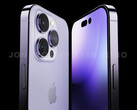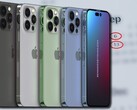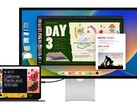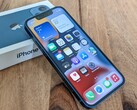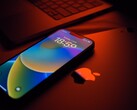According to the latest leaks, Apple is set to rationalize the re-use of the A15 Bionic processor in the vanilla iPhone 14 variants with features that compensate for the lack of cutting-edge silicon in the alleged 6.1-inch base model and rumored first-gen 6.7-inch "Max/Plus". However, TheElec now indicates that display tech might not be one of them.
The South Korean consumer tech manufacturing blog purported to establish that Samsung would be a prominent source of OLED for the iPhone 14 series in an earlier report. Now, it is back on this subject with claims of how this material will vary between the vanilla and Pro models of the same.
Apple has apparently opted for a 'grade' of OLED that Samsung makes called M11 for the 14 and 14 "Plus" - which, should TheElec prove accurate in this new claim, integrates LTPS tech rather than the more up-to-date LTPO.
This contradicts earlier claims of upgrades to the ProMotion adaptive refresh rate spec across the board for the 13-series' successors, but it is apparently an option Apple has gone with to cut costs in 14-series production. (Then again, M11 OLED also apparently features in the flagship Galaxy S22 Ultra phablet.)
Furthermore, the Cupertino giant has reportedly splashed out by comparison with Samsung M12 OLED for the 14 Pro and Pro Max. This material is tipped to be of a quality similar to that of the upcoming Galaxy Fold4, and, thus, more likely to support cutting-edge LTPO battery-saving features.
Furthermore, to buy a iPhone 14/14 Plus is, of course, also said to constitute buying a ticket in a panel lottery: a certain proportion of them are now slated to be made with "RS" OLED from LG Display instead, the LTPS/LTPO status of which is not mentioned.
Finally, there is a 3rd potential prize in this draw for those who buy the 14 this year, with a chance (albeit a relatively slim chance) of getting a unit with a BOE panel instead. It will now be all the more interesting to see how one would compare with identical devices with LG- or Samsung-derived screens instead in 2022.






